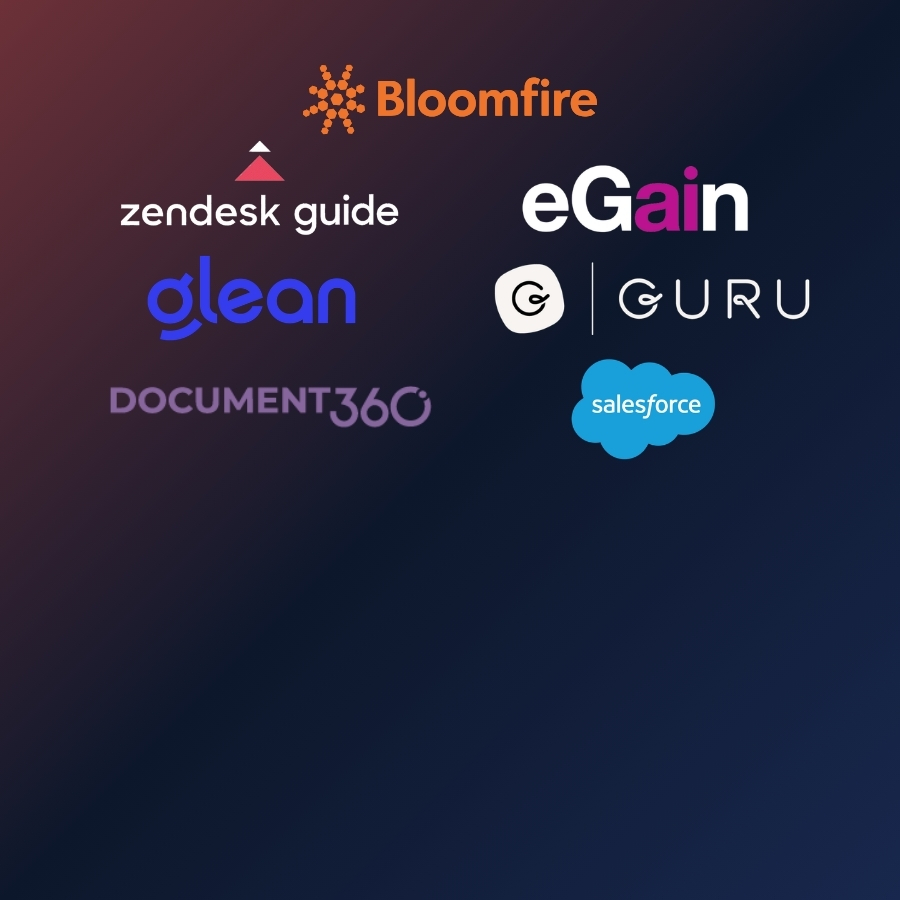5 Ways to Improve the SaaS Customer Experience

Today, customer experience is just as—if not more—important than a company’s product or service. While a great product will attract customers, an incredible customer experience will keep them coming back.
And that makes customer experience critical for software-as-a-service (SaaS) companies. It may be easy enough to initially attract customers, but SaaS companies must also prioritize customer retention. Because SaaS products are membership-based, your company must be able to keep customers to continue generating recurring revenue.
You can boost customer loyalty by providing an exceptional SaaS customer experience. According to Gartner research, customer experience drives more than two-thirds of customer loyalty.
To drive a better SaaS customer experience, you must look at every touchpoint, interaction, and engagement you have with your customers, as well as the behind-the-scenes employee experiences that ultimately impact the customer experience. Here are a few key areas to focus on.
1. Create an Effective Onboarding Program
Once you’ve made the initial sale, your onboarding program will set the tone for your customer’s overall experience. If your onboarding program provides effective and comprehensive training, customers will be more likely to succeed and continue with your product. Research shows that customers with a positive perception of your onboarding process are less likely to drop off in the first 21 days of using a new product or service.
However, if your program is lacking and customers end up confused or frustrated, they may be less likely to renew with your company.
You won’t be able to teach the customer everything during the onboarding process, so it’s essential to empower your customers to find additional information on their own. It can be helpful, for instance, to have a customer-facing knowledge base that allows them to easily find the training materials, FAQs, and tutorials they need to succeed with your product or service.
2. Appoint a Head of Customer Experience to Break Down Silos
Customer experience spans much more than customer support; it encompasses every touchpoint a customer has with a company. With that in mind, every team within a company— including marketing, sales, product, finance, engineering, and support—should play a role in the customer experience.
However, beware of silos; the customer experience can quickly fall apart if each of these teams approaches it with different goals, viewpoints, and information. For example, say a customer has several unresolved issues open with the support team. If your renewals team contacts them about upgrades and expansions without knowledge of the customer’s frustrations, they may add to the customer’s dissatisfaction and begin to erode the overall experience.
To coordinate your customer experience efforts across departments, it can be helpful to appoint a head of customer experience or customer experience council. This person or team can manage your customer experience efforts across the entire organization, making sure all teams are working in harmony.
3. Prioritize and Measure Long-Term Metrics
In the early days, customer experience was measured based on metrics like adoption and customer satisfaction. To improve the customer experience, however, SaaS companies should focus on longer-term metrics—namely, making sure customers achieve their desired outcomes from your product.
Tactically, this involves developing a more detailed, robust way of measuring your clients’ goals and their progress toward those benchmarks. This should start during the sales process and extend all the way through the client lifecycle. This can ensure that the customer experience doesn’t end at adoption, but continues through to renewal and expansion.
4. Enhance the Support Experience
While the customer experience encompasses all departments within a company, clients will often interact with customer support more than other teams. With that in mind, companies should aim to enhance the support experience.
One way to do this is to centralize all customer support knowledge—from FAQs to educational resources to best practice videos—in an internal, searchable knowledge management platform. This allows customer support representatives to find answers to customer questions quickly, which will reduce customer frustrations and increase trust in your SaaS company.
Additionally, a knowledge management platform can help customer support representatives build their knowledge and skills even when they’re not interfacing with customers. For example, training materials and checkpoint quizzes could be added to the platform to ensure reps stay up to date with the latest product knowledge and best practices. Reps could also ask questions in the platform and solicit answers from subject matter experts across the organization. The answers would be preserved in the platform so that others can benefit from the expertise, allowing your SaaS company’s internal knowledge base to grow over time.
5. Solicit and Use Customer Feedback
One of the best ways to improve your customer experience is to ask for feedback from your clients—through surveys, emails, or social media—and actually put it to use. According to some research, 70% of companies that deliver best-in-class customer experience use customer feedback.
That feedback won’t only help you improve your product or service; it will also allow you to build relationships with your customers and give them a sense of ownership. When they feel like their opinions are both important and heard, your customers will be more likely to be loyal to and renew with your company.
Customers don’t only expect great products from SaaS companies; they expect great service and experiences throughout their entire journey. Improving your SaaS customer experience is key to boosting customer loyalty, renewals, and expansion.

How to Improve Customer Service: 9 Strategies to Automate Success

7 Best Customer Service Knowledge Management Systems in 2026

The 6 Knowledge Management Trends That Redefine Strategic Intelligence in 2026

Estimate the Value of Your Knowledge Assets
Use this calculator to see how enterprise intelligence can impact your bottom line. Choose areas of focus, and see tailored calculations that will give you a tangible ROI.

Take a self guided Tour
See Bloomfire in action across several potential configurations. Imagine the potential of your team when they stop searching and start finding critical knowledge.